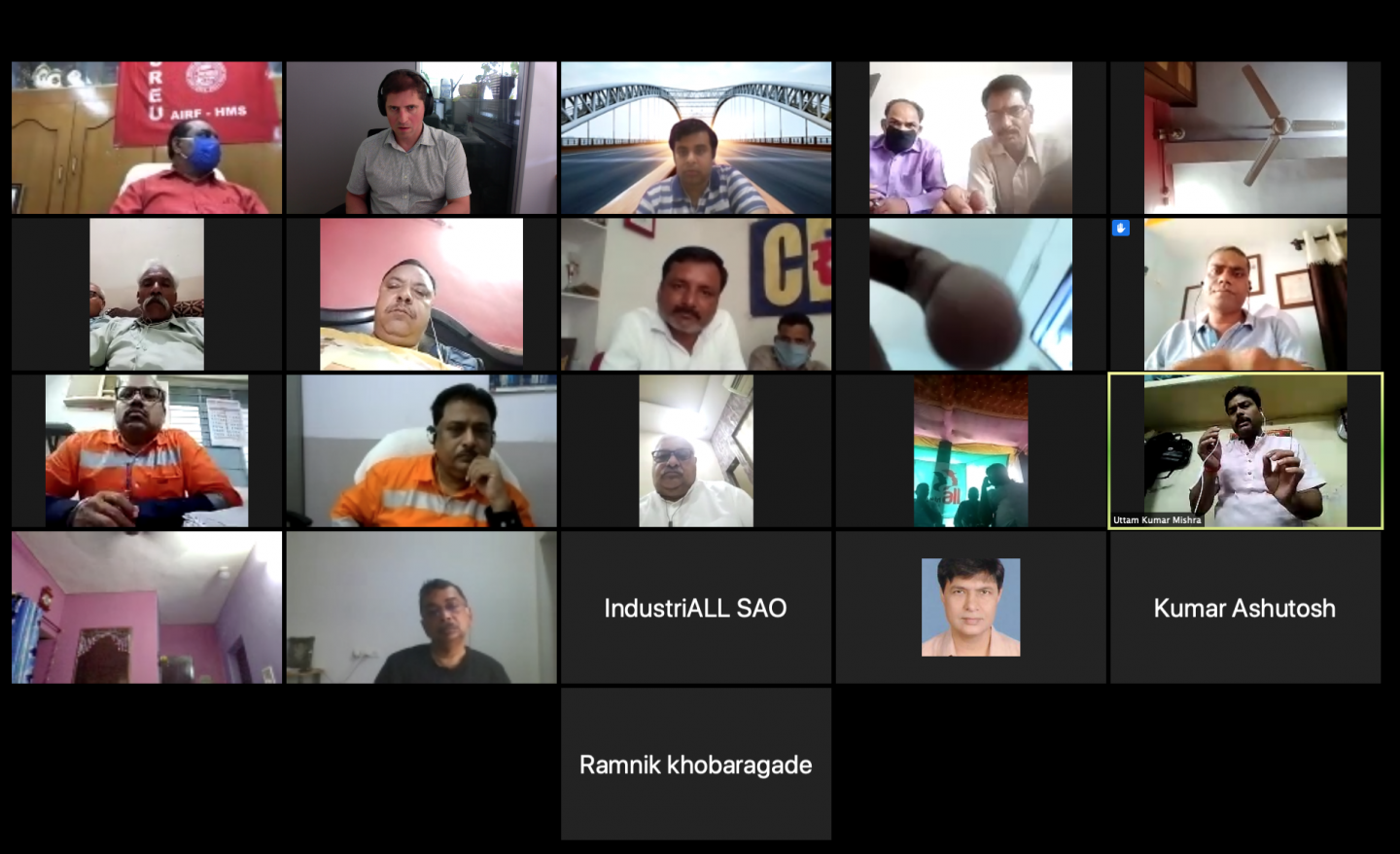Read this article in:
English
19 June, 2020Indian cement unions met virtually on 16 June 2020 to assess how the Covid-19 pandemic has affected the industry and agree on common action. Over 30 union leaders and activists participated, from the Indian National Cement Workers’ Federation, All India Cement Employees’ Federation and Pragatisheel Cement Shramik Sangh.
With the assistance of IndustriALL, union leaders developed a number of demands of the government and Cement Manufacturers Association (CMA), to improve health and safety, end the extensive use of precarious workers and underpayment of wages and arrears.
India is the second largest cement producer in the world after China. The country faces an enormous challenge due Covid-19. During the pandemic, cement production fell by 86 per cent from 29.2 to 4.1 megatons yearly.
Women workers, migrant and contract workers have paid the highest price and have been the first to lose their jobs.
The unions denounced exploitation at cement companies, including LafargeHolcim and HeidelbergCement. While these companies have fully restarted production, manpower has been reduced by up to 30 per cent. This trend, combined with concerns over health and safety, leads to serious health problems and unsafe working conditions.
Many cement enterprises, including ACC and Ambuja, are not renewing third-party contracts and have started working with new contractors at reduced commissions. According to unions, the result is that those third-party workers who do not lose their jobs often see their already low wages reduced by 30 per cent.
Cement production workers are not the only victims: 320 white collar employees lost their jobs at Bangalore based OneIndia BSC, an ACC and Ambuja Cement joint venture.
On 12 June, the Supreme Court of India asked employers to negotiate terms and enter into settlements with workers and trade unions on the payment of wages for the 54-day lockdown period. However there are no sanctions on employers who take advantage of the situation and fail to pay the wages or give regular jobs to contract workers. Contract workers saw their wages slashed by 50-60 per cent at Maratha cement works in Ambuja, ACC (Bargarh), Ambuja (Bhatapara), ACC (Jamul), and Mangalam cement. Despite a signed wage agreement, arrears and wages have not been paid at Ultratech cement in Uttar Pradesh.
Unions demand that the CMA and all cement companies:
- take adequate and immediate steps to mitigate the effects of the pandemic by preventing job losses and maintaining workers’ wages and social security;
- respect fundamental trade union rights in the cement industry;
- respect health and safety protocols to ensure safe workplaces;
- maintain the income and protect the jobs of women workers and develop a gender-conscious response.
Deoraj Singh, general secretary, Indian National Cement Workers’ Federation (INCWF) said,
“The time is really challenging for workers and trade unions, but we cannot afford to keep our workers out of job and income and allowed unsafe working environment. Cement workers actively participated in the 22 May nationwide struggle and will participate in the 3 July nationwide non-cooperation movement, to engage the government and CMA to respect the labour and social rights and engage with unions to make the roadmap for the cement industry.”
Alexander Ivanou, IndustriALL materials industries and communications officer said,
“Underpaid and overexploited workers in Indian cement industry is simply shameful. This industry is one of the biggest contributors to the national GDP. Yet, the workers on whose shoulders this is all built are again the last in line. We will not abandon our members in India in their fight for fair compensation and decent conditions in the cement sector. IndustriALL will apply all our efforts and help Indian unions to repel the anti-worker labour law changes that bring unfair dismissals and wage cuts.”
